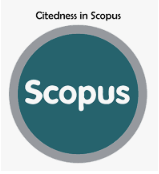Anti-Corruption and Deradicalisation: Shaping a Generation with Integrity or Creating Apathetic Students?
DOI:
https://doi.org/10.56404/jels.v4i2.115Keywords:
Anti-Corruption Education, De-Radicalisation, Integrity, Apathy, University StudentsAbstract
This study aims to explore the impact of anti-corruption and de-radicalisation education on student character building, especially related to integrity and the potential for apathy. A qualitative method with in-depth interviews was used to explore the perspectives of students who have participated in these programmes. The results showed that although anti-corruption education and de-radicalisation increased students' awareness of the importance of integrity and the dangers of corruption, there were indications of the potential for apathy due to inconsistencies between the values taught and the reality faced. Differences in perceptions based on major background and personal experience also affect the effectiveness of the programme. Therefore, this research emphasises the need for a more contextual, participatory and sustainable approach in the implementation of anti-corruption and de-radicalisation education to maximise its impact in shaping a generation with integrity. By continuously improving the quality and effectiveness of anti-corruption and de-radicalisation education, we can build a more just, inclusive and prosperous future for future generations.
References
Abdullah, M. A. (2017). Islamic studies in higher education in Indonesia: Challenges, impact and prospects for the world community. Al-Jami’ah, 55(2), 391–426. https://doi.org/10.14421/ajis.2017.552.391-426
Anderson, G., Herr, K., & Nihlen, A. (2021). Studying Your Own School: An Educator’s Guide to Practitioner Action Research. Studying Your Own School: An Educator’s Guide to Practitioner Action Research, 26–28. https://doi.org/10.4135/9781483329574
‘Azah, N., & Sholeh, M. I. (2024). Strategi Manajemen Pembelajaran Berbasis Teknologi untuk Meningkatkan Prestasi Siswa. AL MIKRAJ Jurnal Studi Islam dan Humaniora, 5(1), 523–544. https://doi.org/DOI: https://doi.org/10.37680/almikraj.v5i01.5911
Boulu-Reshef, B., & Schulhofer-Wohl, J. (2022). The impact of distance on parochial altruism: An experimental investigation. European Journal of Political Economy, 75, 102222. https://doi.org/10.1016/j.ejpoleco.2022.102222
Cénat, J. M., Broussard, C., Jacob, G., Kogan, C., Corace, K., Ukwu, G., Onesi, O., Furyk, S. E., Bekarkhanechi, F. M., Williams, M., Chomienne, M.-H., Grenier, J., & Labelle, P. R. (2024). Antiracist training programs for mental health professionals: A scoping review. Clinical Psychology Review, 108, 102373. https://doi.org/10.1016/j.cpr.2023.102373
Citraresmana, E., & Susilawati, L. (2022). Investigating the Sundanese Traditional Cuisine Proper Names Through Cognitive Linguistic Study for Sundanese Language Learning. English Review Journal of English Education, 10(3), 1077–1084. https://doi.org/10.25134/erjee.v10i3.6725
Creswell, J. W. (2010). Research Design Pendekatan Kualitatif, Kuantitatif, dan Mixed. Pustaka Pelajar.
Fitriati, R., Romdana, R., & Rosyidi, U. (2014). The Practice of the School Principal’s Leadership in Sekolah Indonesia Kuala Lumpur (SIKL): The Study of Leadership Styles and Techniques with Cognitive Mapping Approach. Procedia - Social and Behavioral Sciences, 115, 258–268. https://doi.org/10.1016/j.sbspro.2014.02.434
Gulacar, O., Overton, T. L., & Bowman, C. R. (2013). A closer look at the relationships between college students’ cognitive abilities and problem solving in stoichiometry. International Journal of Physics and Chemistry Education, 5(2), 144–163.
Johnson, E., Mendoza, C., & Sobirin, M. S. (2024). Strategies of School Principals in Improving Educational Quality: An Analysis of Best Practices in American Schools. JMPI: Jurnal Manajemen, Pendidikan, Dan Pemikiran Islam, 2(2).
Juneman, Meinarno, E. A., & Rahardjo, W. (2012). Symbolic Meaning of Money, Self-esteem, and Identification with Pancasila Values. Procedia - Social and Behavioral Sciences, 65, 106–115. https://doi.org/10.1016/j.sbspro.2012.11.099
Lestari, K. A., Fitriani, K., & Muchtari, F. F. (2022). Pendidikan Agama Islam di Era Globalisasi Serta Pengaplikasiannya Dalam Lingkungan Sekolah Dasar. AR-RASYID : Jurnal Pendidikan Agama Islam, 2(2), 117–127. https://doi.org/10.30596/arrasyid.v2i2.10322
Malik, R. S. (2018). Educational Challenges in 21St Century and Sustainable Development. Journal of Sustainable Development Education and Research, 2(1), 9. https://doi.org/10.17509/jsder.v2i1.12266
Mappiasse, S. (2017). Similar Trends, Different Agendas: Religious Instruction in Public Schools in Indonesia, Malaysia and Singapore. Journal of Islamic Education Policy, 1(1), 1–17. https://doi.org/10.30984/j.v1i1.403
Nikolov, S. E. (2022). Nationalism and Warfare. Dalam L. R. Kurtz (Ed.), Encyclopedia of Violence, Peace, & Conflict (Third Edition) (Third Edit, hlm. 100–112). Academic Press. https://doi.org/10.1016/B978-0-12-820195-4.00139-4
Nurhikmah, N. (2024). Character Education Islam From the Views of Imam Al-Ghazali. Jurnal Al Burhan, 4(1), 53–66. https://doi.org/10.58988/jab.v4i1.300
Prayetno, E., Amalia, D., Rahayu, M. A., & Asri, M. R. (2024). Community Service: Tea from Sukun Leaves as a Traditional Beverage with a Modern Approach. Jurnal Al Maesarah: Jurnal Pengabdian kepada Masyarakat Bidang Pendidikan, Sosial, dan Kemasyarakatan, 3(2), 92–104.
Prayetno, E., & Khofifah. (2024). The Concept of Islamic Education: A Comparative Study of Ibn Katsir ’ s and Al-Misbah ’ s Tafsir of QS. Al-Anbiya ’: 7. Edulab: Majalah Ilmiah Laboratorium Pendidikan, 9(1), 51–66.
Prayetno, E., Mubaraq, Z., Nur, A. K., & Al-, R. A. S. (2024). Contemporary Islamic Sects in Indonesia. Jurnal Al Burhan, 4(2), 113–125.
Rahim, A., Nursalam, Suhartatik, Nurhikmah, & Akhiruddin. (2024). Konsep Ideologi Sastra Lisan Doangang Makassar dalam. Jurnal Onoma: Pendidikan, Bahasa, dan Sastra, 10(3), 3274–3282.
Roy, S., Huq, S., & Rob, A. B. A. (2020). Faith and education in Bangladesh: A review of the contemporary landscape and challenges. International Journal of Educational Development, 79, 102290. https://doi.org/10.1016/j.ijedudev.2020.102290
Sholeh, M. I., Azah, N., Arifin, Z., Rosyidi, H., Sokip, S., Syafi’I, A., & Sahri, S. (2024). Development of a Multicultural Curriculum to Enhance Student Tolerance in Senior High School. IJE : Interdisciplinary Journal of Education, 2(3), 163–176. https://doi.org/10.61277/ije.v2i3.147
Sugiyono. (2021). Metode Penelitian Kuantitatif Kualitatif dan R&D. Alfabeta.
Sukarna, N., Sumarmo, U., & Kurniawan, R. (2020). The Role of Inquiry Approach and Cognitive Stage on Student’S Mathematical Critical Thinking Ability and Self Regulated Learning. Journal Of Educational Experts (JEE), 3(2), 74–86. https://doi.org/10.30740/jee.v3i2p74-86
Tamphu, S., Suyitno, I., Susanto, G., Budiana, N., & Salim, M. R. (2024). Building bridges to the future of learning: Exploring artificial intelligence research using R- Studio assisted bibliometrics. Cogent Education, 11(1). https://doi.org/10.1080/2331186X.2024.2417623
Wenren, S., Ding, W., Wang, Z., Xia, Y., Xie, R., & Li, W. (2024). Reciprocal effects between reading comprehension and emotional cognitive ability. Learning and Individual Differences, 109, 102398. https://doi.org/10.1016/j.lindif.2023.102398
Yasin, A. F., Chakim, A., Susilawati, S., & Muhammad, S. H. (2023). Development of Islamic Religious Education Learning in Forming Moderate Muslims. Tafkir: Interdisciplinary Journal of Islamic Education, 4(1), 22–36. https://doi.org/10.31538/tijie.v4i1.227
Yuniarti, P. (2024). The Management of Guidance and Counseling Teachers in Addressing Student Delinquency at MTs Al-Iman Mukomuko. JTL: Journal of Teaching and Learning, 1(2), 149–163.
















